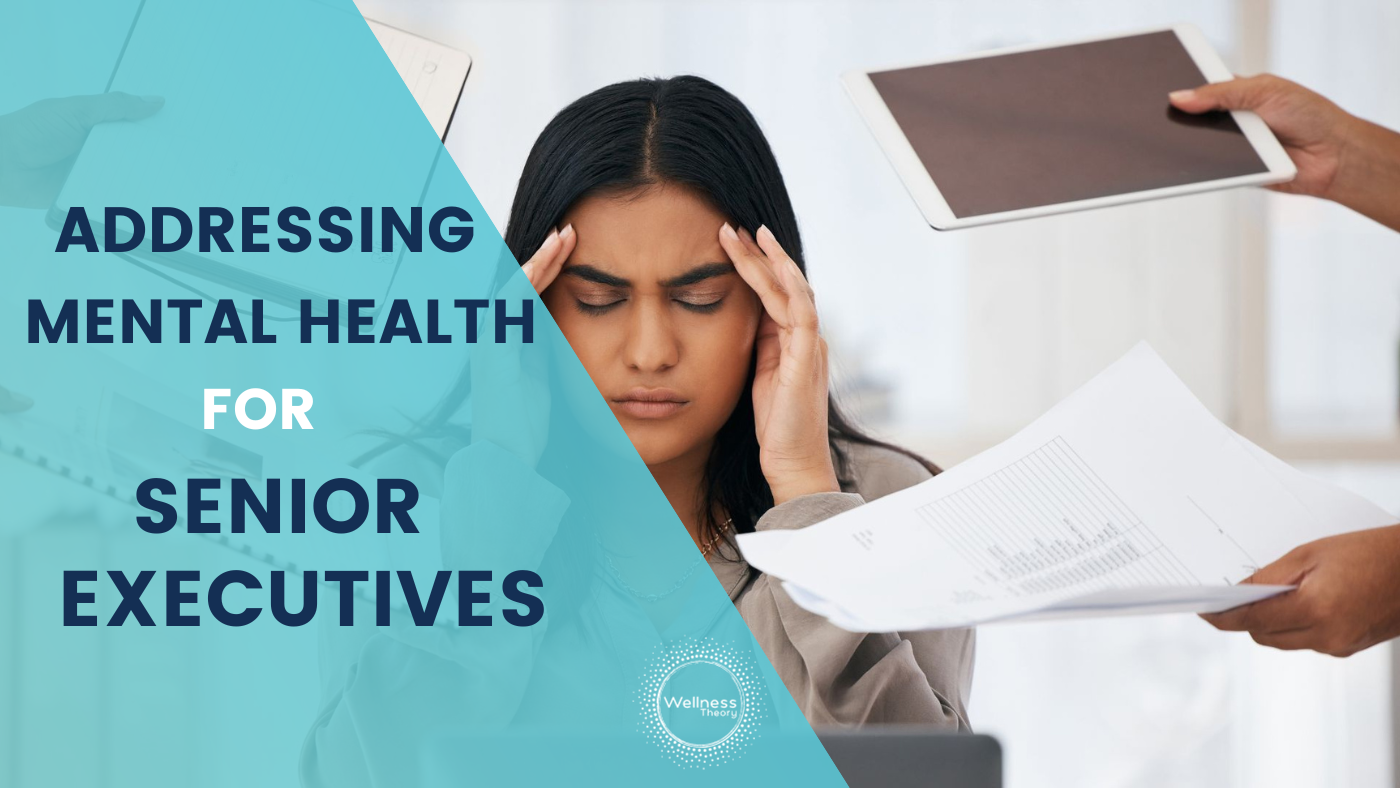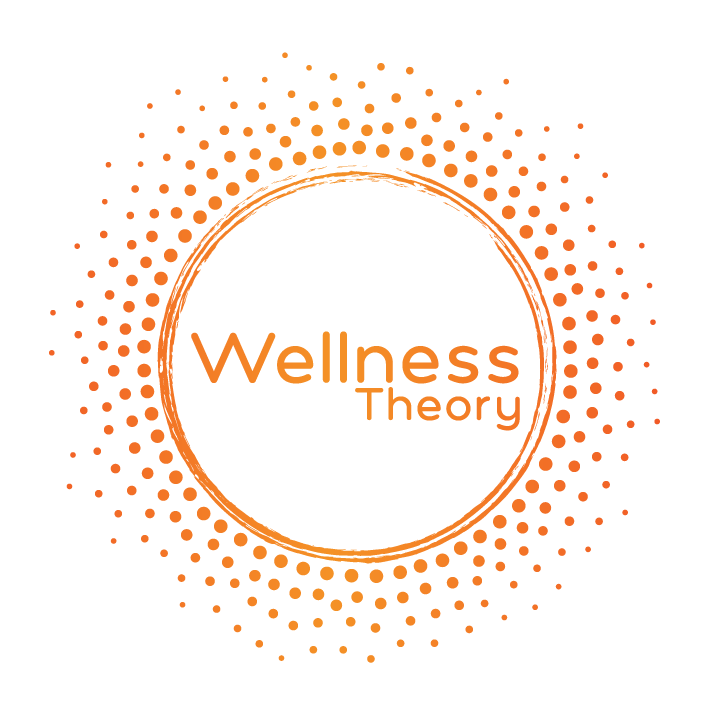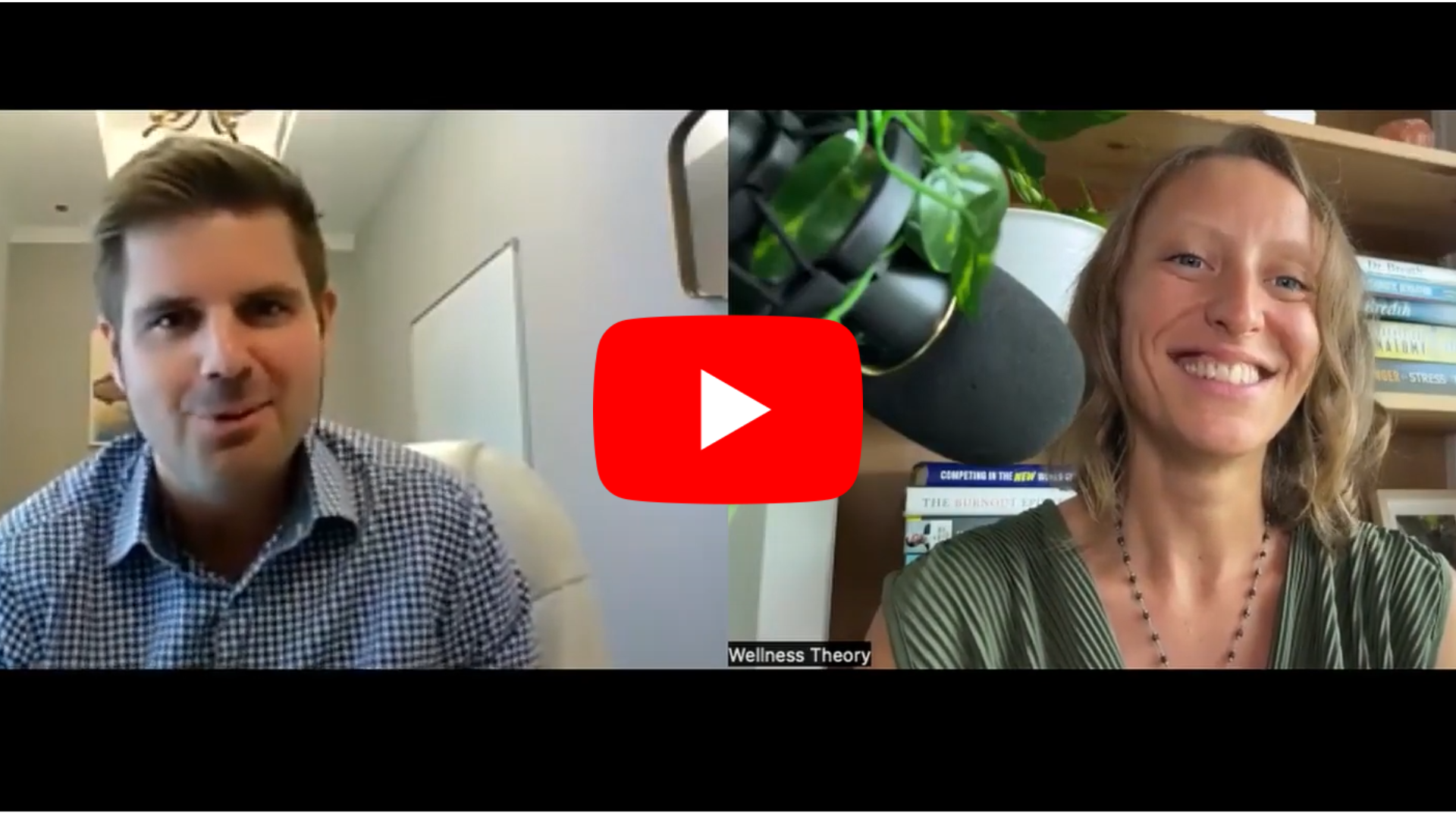Addressing Mental Health for Senior Executives

I recently had the pleasure of interviewing Dr. Robert Chandler, Clinical Psychologist and Director of Lighthouse Arabia's Corporate and Workplace Services. With a rich background in working with high-performing individuals, including senior executives and C-Suite professionals, Dr. Chandler brings a unique perspective to the complexities of mental health in the corporate world.
In this article you’ll find out:
○ Multifaceted Dimensions of Workplace Well-being
○ Factors Driving Burnout Among Senior Leaders
○ Importance of having Comprehensive Well-being Strategy within Organizations
○ The Journey of a Leader striving to improve their mental health
○ Tools and Strategies for Leaders to Enhance their Well-being
○ Dr. Chandler's personal approach to work-life balance and well-being
○ Final Thoughts
Continue reading or Watch the full interview here.
The Multifaceted Dimensions of Workplace Well-being
There are integral components influencing mental health and they all need to be considered by both the individual, the organisation and any stakeholders working in this field. These components include:
1. WORKPLACE
Many senior leaders are fighting crises day-to-day and more connected to their phones and emails than ever. There is a greater demand on how resources are being used and what parameters are in place within day to day operations to protect wellbeing. having to switch in different roles. Dr. Chandler highlighted the need to recognize workplace burnout beyond its immediate occupational implications.

2. PSYCHOLOGICAL
Senior leaders have the pressure to maintain unrelenting high standards. They are rewarded or praised when they are attaining something to a standard. There is something psychological in them that puts them at higher risk as well and it could be about a particular mindset or having to go hard on themselves.

3. SOCIAL
Senior leader executives, generally are in their late 30s to 40s. Unfortunately until gender equality shifts, we’re typically still seeing they are more likely to be men. Unfortunately divorce rates are high in this group. The body is not functioning as well as it did previously. Maybe they’ve got children, they’ve got ageing parents or relatives are starting to pass away around them. This midlife passage, age between like 35 and 45 for any human is can be a transition phase but for senior leaders the social element is often overlooked.

4. LIFESTLYE
Most of the senior leaders find it difficult to maintain a baseline of healthy lifestyle factors due to high responsibility. Exercising multiple times a week, sleeping well and leaning towards convenience for nutritional choices are just a few examples of common challenges of senior leaders.

When working clinically, senior leaders build upon these dimensions.
Factors Driving Burnout Among Senior Leaders
Drawing on statistics, Dr. Chandler notes a direct correlation between seniority, increased risk, and mental health difficulties. Senior leaders often grapple with high-stakes decision-making, long working hours, and the pressure to maintain unrelenting high standards. We need to recognize workplace burnout beyond its immediate occupational implications.
Burnout, though not classified as a mental health condition, can transform into one if left unaddressed. It is important to identify the symptoms of burnout early on, as continued work in this state may lead to anxiety and depressive disorders. Recognizing the signs early on can significantly reduce the impact and prevent the situation from escalating into more severe mental health conditions.

Importance of having Comprehensive Well-being Strategy within Organizations
Creating a psychologically safe environment where employees feel empowered to seek help without fear of repercussions is pivotal. Leaders can play a significant role in shaping this culture by advocating for mental health policies, resources, and training sessions.
However, in cases where an organization might not be fully invested in promoting a mentally healthy workplace, individuals must take ownership of their well-being. This involves proactive steps, such as seeking regular emotional well-being check-ups, akin to annual physical check-ups.
Organizations committed to creating a psychologically safe space see a reduction in stigma. In such environments, employees are encouraged to seek help without fear of negative consequences.
On the other hand, in organizations where mental health initiatives may be lacking, individuals are encouraged to reflect on their own well-being. If an organization is not fully investing in employee well-being, it prompts a personal reflection on whether the current work environment aligns with one's values and supports their mental health.
Tools and Strategies for Leaders to Enhance their Well-being
At the core of The Lighthouse Arabia's mission lies a dedication to placing their community at the forefront of everything they do. Originating from the Raimi Center over a decade ago, their community mental health clinic has been a beacon of support, born out of a genuine commitment to the well-being of those they serve.
They initiated their journey by extending free-of-charge services to the community. These services were specifically designed to provide support for individuals grappling with the loss of a loved one. Today, they proudly continue this tradition, offering complimentary grief services to those navigating the challenges of loss.
Beyond grief support, The Lighthouse Arabia strives to be a comprehensive resource for mental health care. Their commitment extends to providing a variety of free services that cater to the diverse needs of their community. From community support groups addressing topics such as expat living in the UAE to single parent support groups, they offer a range of initiatives to promote well-being.
All these services are accessible on their website, where interested individuals can explore the large amount of resources available. They believe in making mental health care accessible, and that's why all their community support groups are offered completely free of charge. It's their way of ensuring that everyone in our community has access to the support they need.
They are committed to creating an environment where mental health care is not just a service but a right for every individual. The Lighthouse Arabia stands as a testament to the power of community support, compassion, and accessibility in nurturing well-being.
Check their website here: https://www.lighthousearabia.com/
Dr. Chandler's Personal approach to work-life balance and well-being
As a dad, leader of diverse teams, and someone deeply invested in the well-being of others, He often gets asked about his own well-being practices. Maintaining a healthy balance is paramount, and for him, it's a blend of personal practices and the incredible support from his team. One privilege of working in his field is the opportunity to listen to and learn from the stories of those around him. It's not just a job; it's a commitment to well-being, and as per him it would feel hypocritical if he didn't incorporate these principles into his own life.

1. Prioritizing Sleep
He learned the significance of a good night's sleep, aiming for 8 to 9 hours whenever possible. Even with two young children, he will make it a non-negotiable. The impact onhis overall well-being is undeniable – life feels 20% better with adequate rest.

2. Consistent Exercise Routine
Physical activity is non-negotiable. Training four to five times a week is a routine he sticks to, understanding that this commitment positively influences various aspects of his life.

3. Compartmentalization and Presence
Compartmentalization is a skill that he finds immensely helpful. The ability to switch gears deliberately contributes to my overall mental well-being.

4. External Dimensions Beyond Work
Observing successful leaders, he noticed a common thread – they all have something in their lives that goes beyond work. Whether it's a religious practice, a role as a parent, or a personal passion, having a dimension outside of the professional sphere provides valuable perspective.

5. Psychological Flexibility
A crucial theme he has identified is psychological flexibility. This entails the ability to step back from stress, self-criticism, or challenging situations. Instead of reacting impulsively, it involves creating distance, returning to the present moment, and responding in a way aligned with one's values.
As we explore these aspects, it's worth acknowledging that managing well-being is an ongoing journey. Leaders who excel in this arena often embrace these practices consistently. It's about finding that delicate balance between professional commitments and personal well-being.
So, what's the takeaway? Well, it's not just about what you do during work hours but about how you nurture your holistic well-being. It's about acknowledging that work is a significant part of life, but it's not the only part.
Final Thoughts
We've explored the importance of commitment, self-awareness, and responsibility in the journey toward better mental health. From the initial anxiety of seeking help to the relief that comes with understanding oneself, we've delved into the transformative power of therapy and the multidimensional approach to well-being.
As I conclude, it's crucial to recognize that the commitment to well-being extends beyond individual efforts. In the workplace, leaders play a pivotal role in promoting a culture of well-being. We discussed the need for leaders to find something outside of work that is bigger than themselves, highlighting the importance of psychological flexibility and the ability to compartmentalize.
Furthermore, we touched upon the profound impact of early life experiences on present-day functioning. The exploration of these patterns is a key aspect of self-awareness and personal growth. Understanding and addressing these aspects can lead to more authentic and effective leadership.
Access the full interview for free:
Find out more about Dr Robert Chandler.
As always, I’d love to hear your thoughts so we can learn and grow together,
Reach out on Linked In any time, Charlotte Stebbing-Mills
P.S.
Find out how to get the most out of your employee wellbeing programmes by Taking the Optimising Workplace Wellbeing Scorecard.
This Scorecard has been developed to show organisations how to optimise wellness initiatives in this ever-changing landscape and provide instant, actionable steps on how to use strategic wellness programmes to:
• Enhance Performance
• Build Sustainable Profit
• Improve Employee Wellbeing at Every Level
• Create Meaningful Engagement
It's quick, free and you'll receive customised results instantly revealing how to optimise your well-being programs.
Much love and wellness,
Charlotte and Jonathan
AUTHOR
Charlotte Stebbing-Mills
Award Winning Stress Relief & Wellbeing Specialist
Co-Founder of The Wellness Theory
With 19+ years experience and her corporate success within the health, fitness and wellness industry, she has worked with hundreds of purpose-led individuals and organizations to move from surviving to thriving.
After burning out, she knows first-hand how it feels to feel like something is missing in life, to the point of hitting rock bottom and struggling to get back up again. Mastering the art of healing and high-performance simultaneously is no small feat.
Charlotte can relate to how overwhelming it can be, but she'll also be the first to tell you that there is a way forward. Her own journey is proof that you can bounce back and create the life you always wanted, for yourself and those you love.

© COPYRIGHT OF THE WELLNESS THEORY 2021
